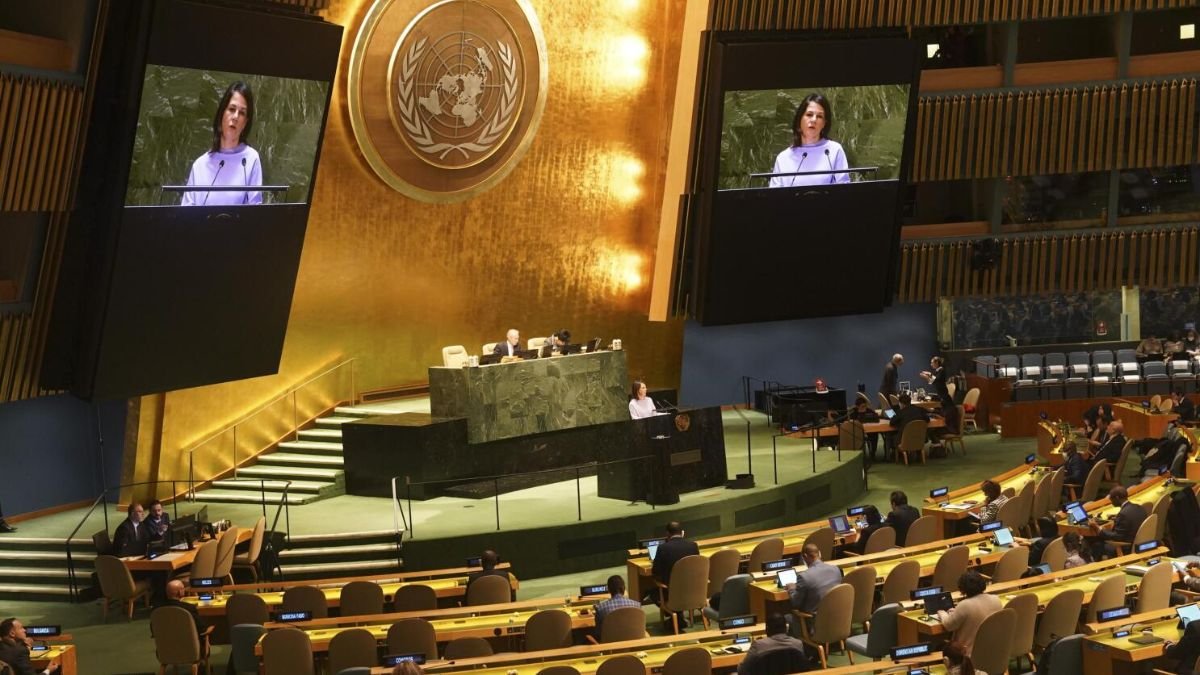In the grand tapestry of global governance, the United Nations Security Council (UNSC) stands as a testament to humanity’s aspiration for peace and collective action. Established in the wake of World War II’s devastation, its creation was driven by a vision of nations coming together to forge a future where dialogue triumphs over discord, and unity prevails over unilateralism. However, like any ambitious endeavor, it faces its share of challenges and criticisms, particularly regarding its decision-making process.
The UNSC’s voting system is uniquely structured, reflecting the post-war power dynamics. Herein lies one of its most contentious aspects: the veto power held by each of the five permanent members. This mechanism allows any one of these nations to block actions or resolutions they oppose—a feature that has sparked considerable debate over how it affects international responses to conflicts.
Critics argue that this system can lead to political maneuverings overshadowing humanitarian needs or moral imperatives. A poignant example is seen in efforts to address crises such as those in Gaza, where despite widespread consensus on the need for peace and humanitarian aid, resolutions can be stalled due to geopolitical interests.
Yet within these criticisms lies an opportunity—an invitation—to reimagine our approach to international diplomacy and cooperation. It prompts us to consider how we can evolve our institutions and mechanisms for conflict resolution in ways that reflect our shared values and aspirations for a united world.
One inspiring outcome amidst these challenges was the passing of a ceasefire resolution for Gaza that garnered support from unexpected quarters due to domestic political pressure within some member states. This instance serves not merely as evidence of what is possible when communities mobilize for peace but also underscores how internal national solidarity can influence global decisions toward more harmonious outcomes.
As we navigate through these complexities, let us remember that institutions like the UNSC are ultimately reflections of our collective will—they embody our struggles just as much as they symbolize our hopes. The path forward requires us not only to critique but also creatively engage with these entities; fostering dialogue across divides, building bridges between differing viewpoints, and advocating tirelessly for reforms that align with our common humanity.
This moment calls upon us all—governments, civil society organizations, citizens around the globe—to reaffirm our commitment towards building a world where every nation contributes positively towards mutual understanding and peacekeeping efforts are empowered rather than encumbered by institutional frameworks.
Let this chapter in history remind us that while structures may falter under weighty expectations or become entangled in complex geopolitics; human resolve remains indomitable—capable of transcending barriers through innovation and collaboration aimed at bettering mankind’s plight against adversity.
Together we stand at a crossroads; may we choose paths leading towards enhanced cooperation among nations ensuring no voice goes unheard nor plea unheeded amid disputes calling out for resolution—in pursuit not just of temporary ceasefires but lasting harmony echoing through generations yet unborn.

Leave a Reply